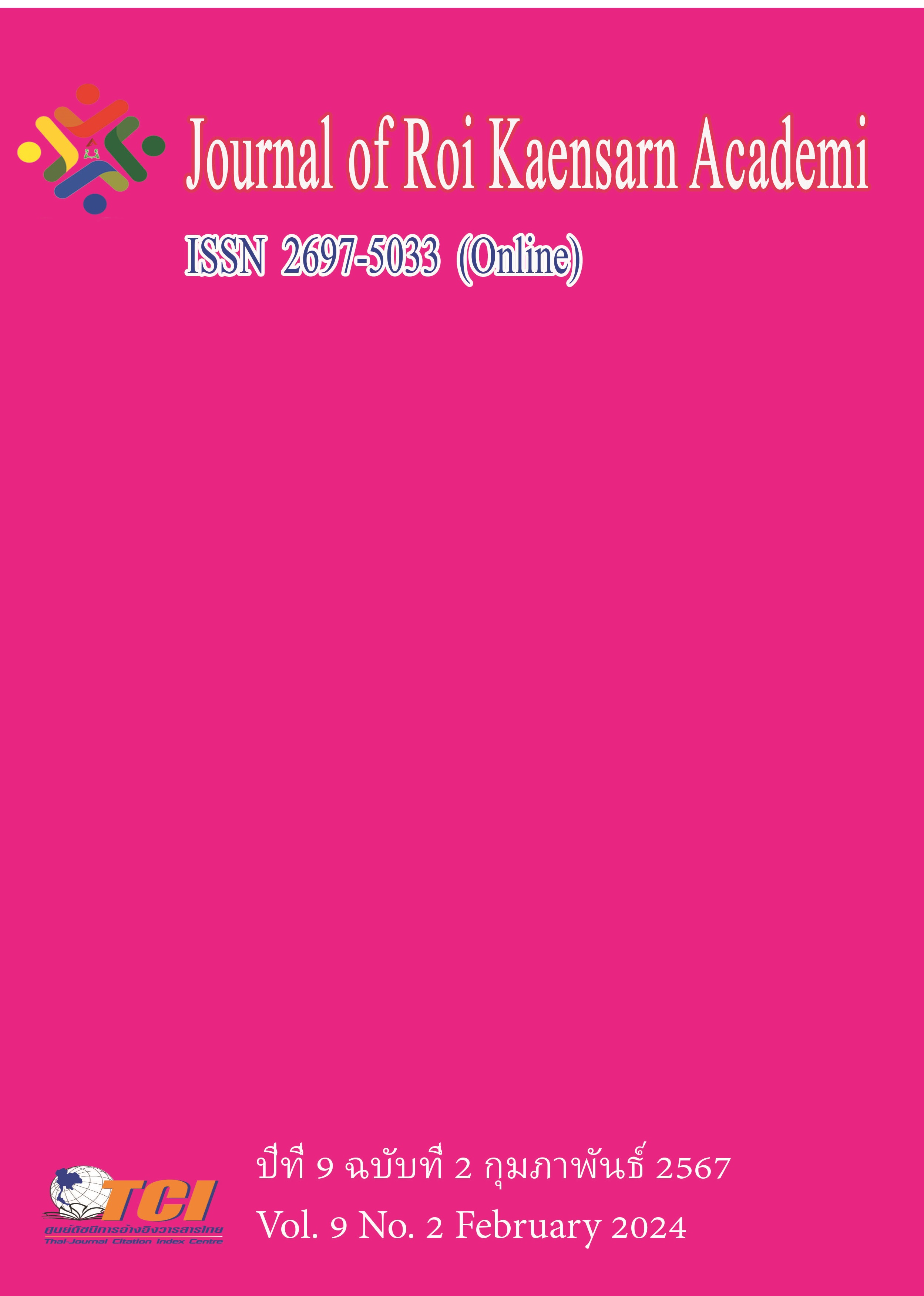Effectiveness of supporting guidelines for international students in Xian universities under Shaanxi province
Main Article Content
บทคัดย่อ
The objectives of this research were: (1) to explore the components of effectiveness of supporting for international students in Xian universities under Shaanxi province; and (2) to propose the effectiveness of supporting guideline for international students in Xian universities under Shaanxi province.
The research was a mixed method between quantitative research and qualitative research. The designated population consisted of faculty members from six universities in Shaanxi province, totaling 11,995 individuals. Guided by krejcie and morgan's table, sample of 370 participants was selected through stratified random sampling. Additionally, 7 key informants, recognized as experts were selecting purposive sampling. A focus group of 9 key informants. Data collection instruments included semi-structure interview, five-point rating scale and focus group discussion form. The employed statistical analysis methods encompassed frequency percentage, mean, standard deviation, and exploratory factor analysis (EFA). And in-depth interviews and focus group discussions data analysis with content analysis.
The research results showed: (1) the effectiveness of supporting guidelines for international students in Xian universities under Shaanxi province there are 5 components consist of: departmental professional support, professional development and learning, life and work support, resources management quality support and emotional information and materials support. And (2) the guideline to improve effectiveness for international students in Xian universities under Shaanxi province. There are 19 sub-guideline including 4 guiding for departmental professional support, 5 guiding for the professional development and learning, 3 guiding for the life and work support, 5 guiding for the organization support. And 2 guiding for the emotional information and materials support.
Article Details
เอกสารอ้างอิง
Aoyama R.(2016).“One belt, one road”: China's new global strategy. Journal of
Contemporary East Asia Studies, 5(2): 3-22.
Arif I. (2022). Educational attainment, corruption, and migration: An empirical analysis
from a gravity model. Economic Modelling,110: 105802.
Clarke M. (2016). ‘One belt, one road’and China’s emerging Afghanistan dilemma.
Australian Journal of International Affairs, 2016, 70(5): 563-579.
Ching Y, Renes S L, McMurrow S, (2017). et al. Challenges facing Chinese international
students studying in the United States. Educational Research and Reviews,12(8):
-482.
Deterding, N. M., & Waters, M.C.(2021). Flexible coding of in-depth interviews: A
twenty-first-century approach. Sociological methods & research, 50(2), 708-739.
Eisenberger R, Stinglhamber F.(2016).Perceived organizational support: Fostering
enthusiastic and productive employees. American Psychological Association.
Huang W Z, Yu L, Zhang S. (2015)Research on the novel information and communication
technology talent training mode under the One Belt and One Road
methodology International Conference on Education, Management and
Information Technology. Atlantis Press: 316-320.
Kai J. A .(2009).critical analysis of accountability in higher education: Its relevance to
evaluation of higher education. Chinese Education & Society, 2009, 42(2): 39-51.
Liu H Y, Tang Y K, Chen X L(2017). The determinants of Chinese outward FDI in
countries along “One Belt One Road”. Emerging Markets Finance and Trade,
-1387.
Li J, Xue E. (2021)Policy Analysis of “One Belt and One Road” Initiatives in China’s
Basic Education System.“One Belt and One Road” and China’s Education
Development. Springer, Singapore: 77-91.
McMillan R C.(1997).Customer satisfaction and organizational support for service
providers. University of Florida,.
Ogunniran M.(2020).The opening-up of education in the new era: Communist Party of
China (CCP) and the Central Committee. Educational Philosophy and Theory,
(8): 1-7.
Jiang Q, Yuen M, Horta H. Factors influencing life satisfaction of international students in
Mainland China. International Journal for the Advancement of Counselling, 2020,
: 393-413.
Russell M. (2005). Marketing education: A review of service quality perceptions among
international students. International Journal of Contemporary Hospitality
Management.
Ye X, Li L, Tan X.(2017). Organizational support: Mechanisms to affect perceived
overqualification on turnover intentions: a study of Chinese repatriates in
multinational enterprises. Employee Relations.

